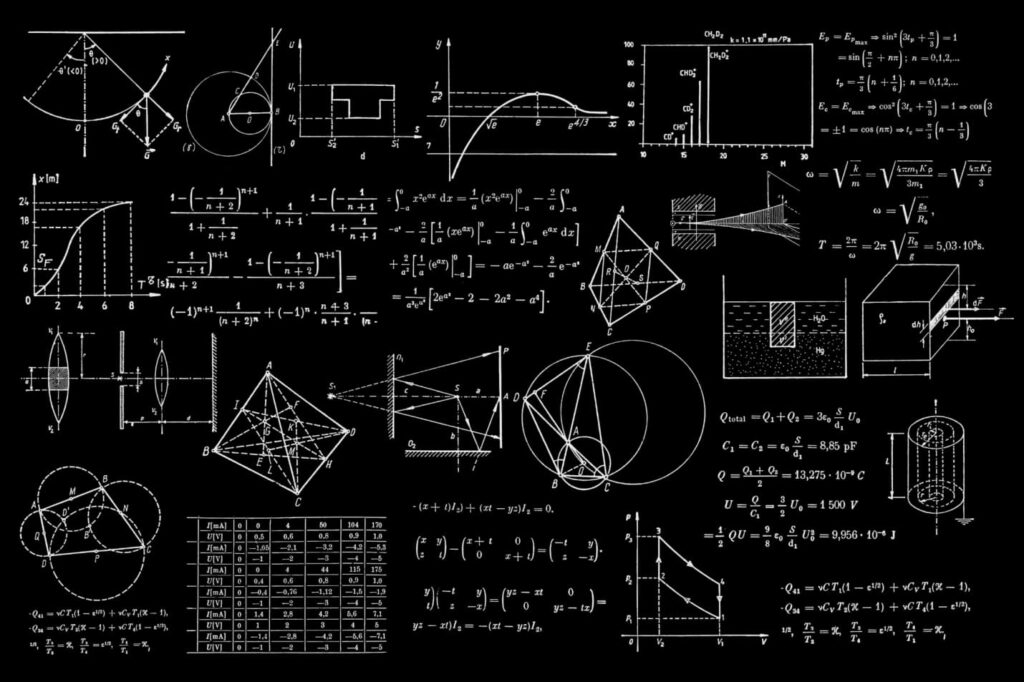Physics, the fundamental science exploring the nature and properties of matter and energy, is pivotal in the pantheon of scientific disciplines. It delves into the core principles that govern the universe, from the vast expanse of cosmic phenomena to the subatomic particles that construct our existence. Yet, amidst its grandeur and significance, a common query often arises: why is physics so hard? This question echoes in classrooms, laboratories, and among curious minds worldwide, highlighting a universal perception of physics as a particularly challenging field.
The purpose of this article is not only to acknowledge this question but also to delve deeper into the multifaceted reasons behind the perceived difficulty of physics. By examining its abstract concepts, heavy reliance on mathematics, constantly evolving theories, and the necessity of practical application, we aim to uncover why it, with all its complexities and intricacies, typically seems daunting to learners and enthusiasts alike.
The Abstract Nature of Physics Concepts
One of the most significant hurdles in grasping physics, particularly when questioning why is AP physics so hard, lies in its abstraction. Unlike subjects grounded in tangible experiences,it frequently requires one to conceptualize phenomena that are not directly observable. Take, for instance, quantum mechanics and relativity. These areas embody the epitome of abstract nature: quantum mechanics with particles existing in superpositions and relativity bending the fabric of space and time – concepts far from everyday experience.
This level of abstraction isn’t just a step away from the concrete. It’s a giant leap. For students, especially those tackling AP physics, these topics demand a significant shift in thinking. It’s not just about learning new information. It’s about changing how one perceives the world. The complexity of visualizing and understanding phenomena that can’t be seen or touched poses a formidable challenge. The requirement to comprehend these ideas at a level that allows for their use in challenging problem-solving scenarios further increases this barrier. Thus, the abstract nature of key concepts is a fundamental reason many find AP physics exceptionally challenging.
The Mathematical Foundation of Physics
A primary factor contributing to the question of why is AP Physics C so hard is its deep-rooted dependence on mathematics. Physics, in its essence, is a quantitative science employing mathematical models and equations to describe the laws governing the physical world. This symbiosis with mathematics is not just a feature but a necessity for accurately representing and predicting phenomena.
For students grappling with AP Physics C, the challenge is twofold. Firstly, the course doesn’t merely use mathematics as a tool. It requires a profound understanding of advanced mathematical concepts. We’re talking about calculus, a branch of mathematics that deals with rates of change and the accumulation of quantities. It’s a significant leap from the algebra and basic trigonometry used in earlier courses.
Secondly, students who struggle with mathematical concepts find themselves disadvantaged. Problems often require mathematical calculations and the ability to translate scenarios into mathematical language. This skill is critical in AP Physics C, where theoretical understanding must be coupled with mathematical proficiency to solve complex problems effectively.

The Evolving Nature of Physics
A key aspect of what makes physics so hard is its constantly evolving nature. Unlike many fields where foundational concepts remain largely static, this is in perpetual flux, with new theories and discoveries continually reshaping our understanding of the universe. This dynamic quality, while exhilarating, presents a unique challenge: the necessity to stay abreast of the latest developments.
For students and professionals alike, the pace at which physics advances can be inspiring and overwhelming. As one becomes comfortable with a set of principles, new research can modify or overturn these established ideas. This evolution demands a robust foundational understanding and the flexibility to adapt and incorporate new information.
This ever-changing landscape contributes significantly to its complexity. It requires a commitment to continuous learning and an openness to revising long-held beliefs, adding layers of difficulty to an already challenging subject. This relentless progression is what makes physics both fascinating and formidable.
The Requirement for Practical Application
Contrary to the notion that physics is easy, a significant aspect that adds depth and complexity to the subject is its requirement for practical application. Physics is not confined to theoretical constructs. It demands real-world application through lab experiments and hands-on problem-solving. This practical component is essential, bridging the gap between abstract theories and tangible outcomes.
However, this transition from theory to practice can be challenging. It’s one thing to understand the principles of physics on paper. Applying these concepts in a lab setting or real-world scenario is another. This gap can sometimes be a hurdle, as theoretical knowledge does not always seamlessly translate into practical skills. The ability to design experiments, manipulate equipment, and interpret data requires a different set of competencies, making the practical application of physics a demanding yet crucial part of mastering the subject.
Physics Interdisciplinary Nature
Physics is not an isolated discipline. Its principles permeate and intersect with various fields like chemistry, biology, and engineering. This interdisciplinary nature significantly adds to the subject’s complexity. In chemistry, for instance, understanding atomic and molecular structures is deeply rooted in physical principles. Biology often requires a grasp of biophysics to explain cellular processes or biomechanics.
On the other hand, engineering applies physics to solve practical problems, ranging from building bridges to developing electronic devices.
While this intersection enhances richness and applicability, it also demands a broader knowledge base and the ability to integrate concepts from different scientific domains. However, this very complexity makes it invaluable for a comprehensive scientific understanding. It encourages a holistic approach, fostering the ability to see the interconnectedness of various scientific phenomena and principles, which is crucial in today’s increasingly interdisciplinary world.
Conclusion
As we have examined the multifaceted nature of physics, we have navigated through its abstract concepts, deep-rooted mathematical foundation, constantly evolving theories, the necessity of practical application, and its interdisciplinary character. These elements contribute to the perception of it as a challenging discipline.
The abstractness demands imagination, the mathematical rigor requires precision, the evolving theories call for adaptability, practical applications necessitate hands-on skills, and the interdisciplinary aspects involve a broad understanding of multiple scientific fields.




